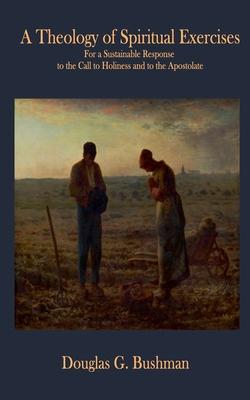The Catechism reminds us that "Christ enables us to live in him all that he himself lived, and he lives it in us" (CCC, 521). Life "in Him" is the grace of graces, and our vocation is to receive it, to be good stewards of it, and to cooperate with it so that it may produce an abundant harvest of personal holiness and fruitful mission. This, too, is grace, and spiritual exercises are the ways in which we receive and cooperate with this grace. They are enactments of the wisdom of the saints, who guide us in responding to the ways God is present in order to impart graces to foster ongoing conversion that deepens communion with Him and invigorates the mission He entrusts to us. A Theology of Spiritual Exercises unpacks and explains this definition of spiritual exercises, first by setting forth the biblical and theological foundations of spiritual exercises. Today, as at the time of Jesus, the impact of the good news that He proclaims provokes the question, "What, then, must I do?" A Theology of Spiritual Exercises answers this question in two ways. The first examines the principles of spiritual exercises, condensed in St. Mark's observation: "And he appointed twelve, whom he also named apostles, to be with him, and to be sent out to proclaim the message" (Mk 3:14). Christ's disciples and friends must be with Him in order to be loved and transformed by Him. In this way, He equips them to be sent by Him to proclaim the good news of God's love. With this basis established, A Theology of Spiritual Exercises considers eleven spiritual exercises, with a particular focus on prayer, examination of conscience, and the obedience of faith, which is manifest in fidelity to the tasks and duties of each person's vocation. A discussion of eight closely related disciplines, also recommended by saints, complements this, including: the importance of spiritual friendships; suffering; wholesome recreation; discernment of God's will; the balance that the Eucharist and conscience bring to the spiritual life and to spiritual exercises.

The Catechism reminds us that "Christ enables us to live in him all that he himself lived, and he lives it in us" (CCC, 521). Life "in Him" is the grace of graces, and our vocation is to receive it, to be good stewards of it, and to cooperate with it so that it may produce an abundant harvest of personal holiness and fruitful mission. This, too, is grace, and spiritual exercises are the ways in which we receive and cooperate with this grace. They are enactments of the wisdom of the saints, who guide us in responding to the ways God is present in order to impart graces to foster ongoing conversion that deepens communion with Him and invigorates the mission He entrusts to us. A Theology of Spiritual Exercises unpacks and explains this definition of spiritual exercises, first by setting forth the biblical and theological foundations of spiritual exercises. Today, as at the time of Jesus, the impact of the good news that He proclaims provokes the question, "What, then, must I do?" A Theology of Spiritual Exercises answers this question in two ways. The first examines the principles of spiritual exercises, condensed in St. Mark's observation: "And he appointed twelve, whom he also named apostles, to be with him, and to be sent out to proclaim the message" (Mk 3:14). Christ's disciples and friends must be with Him in order to be loved and transformed by Him. In this way, He equips them to be sent by Him to proclaim the good news of God's love. With this basis established, A Theology of Spiritual Exercises considers eleven spiritual exercises, with a particular focus on prayer, examination of conscience, and the obedience of faith, which is manifest in fidelity to the tasks and duties of each person's vocation. A discussion of eight closely related disciplines, also recommended by saints, complements this, including: the importance of spiritual friendships; suffering; wholesome recreation; discernment of God's will; the balance that the Eucharist and conscience bring to the spiritual life and to spiritual exercises.